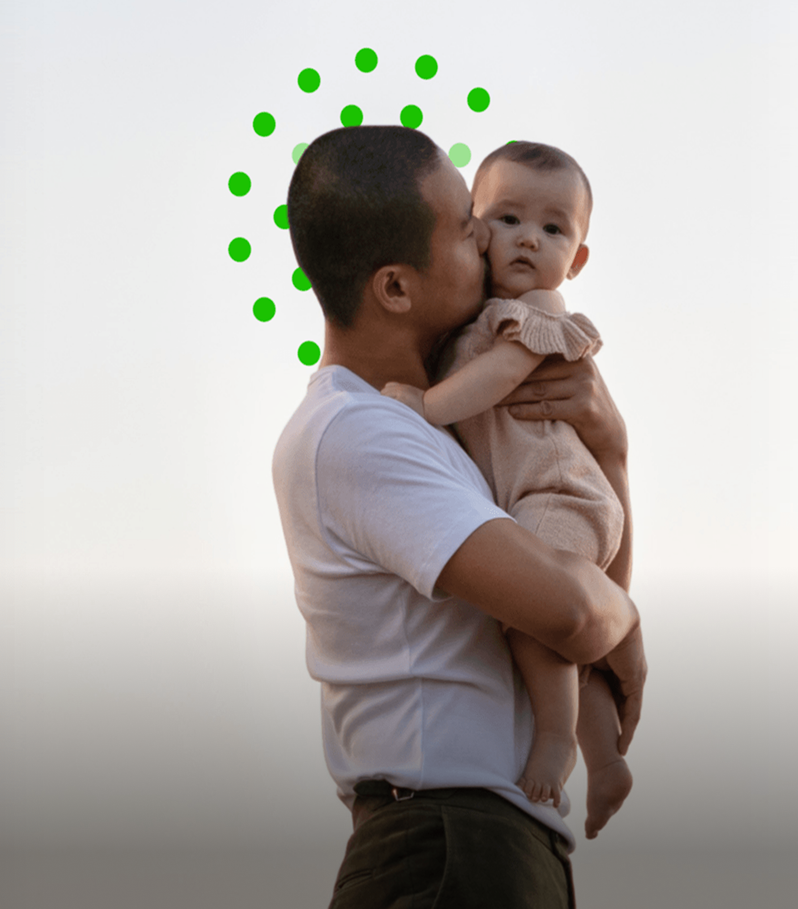Download the Felix App
Earn reward, visit our shop and get exclusive offers on the app
Download nowEarn reward, visit our shop and get exclusive offers on the app
Download nowPut your health first in 2026 with free visits on all categories, and $200 off longevity testing.
Download nowPut your health first in 2026 with free visits on all categories, and $200 off longevity testing.
Download now
AI-generated summaries may be inaccurate and do not constitute medical advice. Third-party AI tools are not under Felix's control, and your use of them is at your own risk.
There are many physical changes that people go through during menopause. One of these symptoms is hair loss.
To help you better understand some of the reasons why hair may fall out during menopause, as well as some treatments for losing hair during menopause, the Felix team put together this page.
If you’re already experiencing thinning hair during menopause, and you’d like to talk to a practitioner about what treatment options may work for you, just complete a short assessment to get started.
During menopause, many individuals experience changes in their hair's thickness and overall health. Hair loss due to menopause is common as estrogen and progesterone, beyond their roles in reproduction, also promote hair growth and help maintain hair in its growing phase for extended periods. As levels of these hormones decline during menopause, you may notice your hair becomes thinner, less dense, and grows more slowly.
Additionally, there may be increased hair growth in places like the face, even as hair loss occurs on the scalp. This is due to the relative increase in androgens (male hormones that all women have) as estrogen and progesterone levels decline. This shift often leads to androgenetic alopecia or female pattern hair loss, which primarily affects the top and crown of the scalp.
Other factors like stress, changes in metabolism, and nutritional deficiencies linked to menopause can also impact hair health. Understanding these changes is the first step towards managing them effectively.
The potential for hair regrowth or thickness improvement after menopause varies by individual and depends on several factors:
Hair plays a crucial role in personal identity, making changes in hair health emotionally significant. While some changes may not fully reverse, there are strategies and treatments to help manage this condition and potentially improve hair health. It’s about finding the right approach for you and embracing this transition with knowledge, support, and self-compassion.
Research highlights the role of Vitamin D in the hair cycle, particularly in the development and nurturing of new hair follicles.
A deficiency in this vitamin has been associated with alopecia (a technical term for hair loss), suggesting that maintaining sufficient levels of Vitamin D is crucial for preventing hair loss and supporting the regeneration of hair.
This mineral is fundamental for hair health, primarily because it helps carry oxygen to hair follicles, which is vital for growth and repair.
Iron deficiency, which leads to anemia, is one of the most common causes of dietary-related hair loss. Ensuring you have sufficient iron in your diet can help mitigate thinning hair in menopause.
This vitamin is crucial for overall health, with specific roles in red blood cell formation and cellular metabolism, which are essential for hair growth.
Deficiencies in Vitamin B12 can lead to noticeable hair loss, making it important for individuals, especially those on restricted diets such as vegans, to ensure they receive adequate amounts of B12.
While research directly linking omega-3s to hair growth is still evolving, these fatty acids are known for their anti-inflammatory properties, which can benefit scalp health and potentially impact hair density and health.
Zinc is essential for hair tissue growth and repair. Deficiencies in zinc can lead to hair loss. Clinical studies have shown a correlation between zinc levels and the severity of alopecia, suggesting that maintaining adequate zinc intake is crucial for hair health
Recognized for its role in hair health, biotin supports keratin infrastructure, a basic protein that constitutes hair, skin, and nails.
While its benefits are particularly noticeable in individuals with a deficiency, maintaining adequate biotin levels can support overall hair health.
While incorporating these essential vitamins and nutrients can significantly support hair health during menopause, it's important to consult with a licensed healthcare practitioner to determine which vitamins are best suited to your individual health needs.
While there's no one-size-fits-all solution, several strategies can help manage and potentially reduce hair loss:
Consult a specialist, such as a dermatologist or a licensed healthcare practitioner specializing in hair and scalp health, for personalized advice and treatment options. These strategies focus on slowing hair loss due to menopause, stimulating regrowth where possible, and supporting overall hair health.
As we mentioned above, there’s no single solution that’s going to work for every person. Finding the underlying cause of your hair loss, as well as an effective strategy that works for you is the best way to manage thinning hair during menopause. Your healthcare practitioner will be able guide you through this transition and what treatment options may work best for you.
If you’d like to talk to a healthcare practitioner at Felix about treatment options for hair loss during menopause, and whether they could be right for you, complete a short assessment to get started today.
Medically reviewed by
References



























